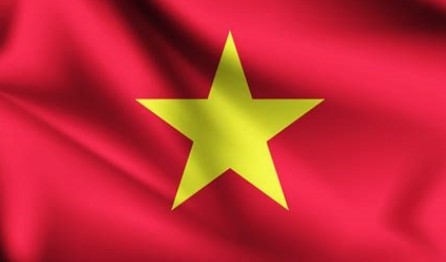HANOI — Vietnam is accelerating major visa policy reforms in 2025 in an effort to draw not only tourists but foreign investors, skilled professionals, and high-net-worth individuals. Under government resolutions issued this year, changes include expanded visa waivers, longer e-visa validity, and proposed long-stay “golden visas” for those deemed valuable to the country’s economic, cultural, or scientific development.
According to the Vietnam National Authority of Tourism, Vietnam welcomed 10.6 million foreign visitors in the first half of 2025 — a 20.7 percent increase from the same period in 2024. The largest cohorts came from China and South Korea.
Key Visa Waivers & E-Visa Upgrades
- Under Resolution No. 44/NQ-CP, issued March 7, 2025, citizens of 12 countries — including Germany, France, Italy, Spain, the United Kingdom, Russia, Japan, South Korea, Denmark, Sweden, Norway, and Finland — are now visa‐exempt for up to 45 days per visit, for any purpose, with this policy valid through March 14, 2028. ❖ Previously, stays for many of these nationals had been limited to 15 days.
- At the same time, Vietnam has expanded its e-visa program, which since August 2023 now covers all nationalities, with validity increased from 30 to 90 days, and allows both single and multiple entry. Applicants can submit their applications online.
- Special visa exemption cards under Decree No. 221/2025/ND-CP, effective August 15, 2025, provide multi-entry visa waivers for up to five years for select individuals — including investors, scientists, artists, and experienced digital professionals — under eligibility criteria set by governmental bodies.
Golden Visa & Long-Stay Plans Under Discussion
Vietnam is also exploring a golden visa program, potentially valid for five to ten years, that would broaden eligibility beyond traditional investor categories. Proposed beneficiaries include individuals who can make cultural, scientific, or economic contributions — not only via financial investment but through innovation, high achievement, or professional excellence. Urban and economic hubs such as Hanoi, Ho Chi Minh City, Da Nang, and Phu Quoc are likely pilot locations.
Government Goals & Promotional Push
These visa reforms are a central part of a government-led stimulus for tourism under the banner “Vietnam — Travel to Love.” The strategy combines visa policy liberalization with marketing campaigns, discounts on services, enhanced promotion in international markets (including Western Europe, Japan, South Korea, India, Australia, and the U.S.), and improved connectivity through more flights.
Officials say the changes respond to Vietnam’s high growth in inbound visitors and aim to shift from short-term tourist volume to long-stay value, knowledge transfer, and global talent attraction.
What Remains Unclear & What to Watch
- The golden visa rules have been proposed but not yet enacted: many details—criteria, fees, rights (e.g. residency, work), renewal terms—are still under discussion.
- How Vietnam will manage capacity, enforcement, and infrastructure for large numbers of long-stay foreigners remains to be seen.
- The real test will be how these policies are implemented in practice, particularly for visa categories that favor cultural figures, researchers, and tech talent — groups that often deal with complex documentation and bureaucratic processes.
Conclusion: Vietnam’s 2025 visa reforms represent a significant recalibration: from primarily short visit tourist entry toward more inclusive long-stay options, especially for skilled, economic, and cultural contributors. If enacted as proposed, the golden visa and special exemption cards could mark a transformation in how Vietnam competes for global talent and investment. (zai)

